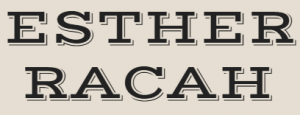“The Confidence-Man” by Herman Melville: An Exploration of Deception and Trust
Introduction
“The Confidence-Man” by Herman Melville, with the subtitle “His Masquerade,” published on April 1, 1857, stands as a compelling and enigmatic work in the canon of American literature. Set on a Mississippi riverboat on April Fools’ Day, the novel delves into the themes of deception, trust, and the complex interplay between appearance and reality. Through its intricate narrative structure and richly drawn characters, Melville challenges readers to ponder the nature of confidence and the inherent duplicity in human interactions.
Plot and Structure of “The Confidence-Man” by Herman Melville
“The Confidence-Man” unfolds as a series of encounters between passengers on the riverboat Fidèle. The eponymous Confidence-Man assumes various guises, engaging with other travellers and weaving a web of persuasion and deceit. From a disabled beggar to an herb doctor and a charity solicitor, the Confidence-Man’s transformations highlight the fluidity of identity and the ease with which trust can be manipulated. The novel’s structure is episodic, with each chapter presenting a new scenario in which the Confidence-Man tests the gullibility and moral fibre of his targets. This format allows Melville to explore a wide array of human behaviours and social dynamics, creating a tapestry of interactions that reflect the broader societal anxieties of the mid-19th century.
Themes and Motifs in “The Confidence-Man” by Herman Melville
At its core, “The Confidence-Man” grapples with the ambiguity of truth and the fragility of trust. The Confidence-Man’s various personas embody different aspects of deception, illustrating how easily appearances and rhetoric can sway people. Melville’s portrayal of these interactions raises questions about the nature of belief and the ethical implications of deceit. The novel also delves into the theme of identity, examining how individuals construct and present themselves to the world. The Confidence-Man’s fluidity of identity serves as a metaphor for the more significant human condition, where people often adopt different roles to navigate social expectations and personal desires.
Satire and Social Critique
Melville employs satire to critique the moral and philosophical landscape of his time. The novel’s setting on a riverboat—a microcosm of society—allows Melville to scrutinise various social institutions and the behaviours they engender. Through the Confidence-Man’s interactions, Melville exposes the hypocrisy, greed, and gullibility that pervade society, offering a scathing commentary on the human propensity for self-deception.
Reception and Legacy
Upon its release, “The Confidence-Man” received mixed reviews, with some critics praising its originality and others perplexed by its unconventional structure and themes. Over time, however, the novel has gained recognition as a significant work of American literature, appreciated for its complexity and its exploration of timeless human concerns. Melville’s story continues to resonate with contemporary readers and scholars. Its pages offer a profound meditation on the nature of trust, the construction of identity, and the enduring power of deception. “The Confidence-Man” remains an excellent example of Melville’s literary prowess and his ability to probe the depths of the human psyche.
Literary Techniques and Style of “The Confidence-Man” by Herman Melville
Melville’s “The Confidence-Man” is notable for its innovative narrative techniques and stylistic choices. The novel’s language is richly layered, blending humour with philosophical reflection. Melville employs irony and ambiguity throughout the text, leaving readers questioning the reliability of both the Confidence-Man and the other characters. This ambiguity serves to underscore the novel’s central themes, as readers are drawn into the same web of uncertainty that ensnares the characters on the Fidèle. The novel’s dialogue is particularly noteworthy, characterised by its sharp wit and rhetorical flair. Melville’s characters often engage in extended conversations that reveal their beliefs, prejudices, and vulnerabilities. These dialogues not only advance the plot but also provide a vehicle for Melville to explore complex philosophical and ethical questions. The interplay of dialogue and narrative creates a dynamic reading experience, inviting readers to engage with the text and its themes actively.
Symbolism and Allegory in “The Confidence-Man” by Herman Melville
Melville’s use of symbolism and allegory adds depth to “The Confidence-Man,” enriching its exploration of deception and trust. The riverboat Fidèle itself is a powerful symbol, representing the journey of life and the shifting nature of reality. As the boat travels down the Mississippi River, it becomes a floating stage for the Confidence-Man’s masquerades, a place where identities are fluid and truth is elusive. The Confidence-Man’s various disguises serve as allegories for different aspects of human nature and society. For example, his persona as a herb doctor critiques the medical profession and the exploitation of people’s fears and hopes. Similarly, his role as a charity solicitor highlights the tension between genuine altruism and self-serving manipulation. Through these allegories, Melville critiques the moral ambiguities and contradictions inherent in human behaviour.
Philosophical Underpinnings in “The Confidence-Man” by Herman Melville
“The Confidence-Man” is deeply rooted in philosophical inquiry, reflecting Melville’s engagement with contemporary intellectual currents—the novel grapples with existential questions about the nature of self and the possibility of authentic communication. Melville’s characters often ponder the limits of human knowledge and the uncertainty that defines existence. These philosophical reflections are woven seamlessly into the narrative, enriching the novel’s thematic complexity. One of the critical philosophical influences on “The Confidence-Man” is the concept of scepticism, particularly the idea that certainty is unattainable and that doubt is an integral part of the human experience. The Confidence-Man embodies this scepticism, constantly challenging the beliefs and assumptions of the other characters. Through this lens, the novel can be seen as a meditation on the limits of reason and the perils of unquestioning faith.
Impact on American Literature
“The Confidence-Man” occupies a unique place in American literature, bridging the gap between the romanticism of Melville’s earlier works and the emerging realism of the late 19th century. Its exploration of psychological and social themes foreshadows the concerns of later American novelists, including Henry James and Mark Twain. The novel’s innovative narrative structure and thematic depth have influenced a wide range of writers, cementing its status as a precursor to modernist literature. Melville’s examination of the American character, with its emphasis on individualism, scepticism, and the pursuit of success, resonates with the broader cultural and historical context of the United States. The Confidence-Man’s masquerades reflect the complexities of a rapidly changing society marked by economic expansion, social mobility, and a growing sense of uncertainty. In this way, “The Confidence-Man” offers a timeless exploration of the American psyche and its enduring preoccupations.
Conclusion
“The Confidence-Man: His Masquerade” by Herman Melville remains a profound and provocative work that continues to challenge and captivate readers. Through its intricate narrative, rich symbolism, and philosophical depth, the novel offers a penetrating critique of human nature and the complexities of trust and deception. Melville’s masterful blending of satire, allegory, and philosophical inquiry ensures that “The Confidence-Man” remains a vital and relevant text in the landscape of American literature. Its enduring legacy is an illustration of Melville’s brilliance as a writer and his ability to probe the most profound questions of existence with insight and artistry.





